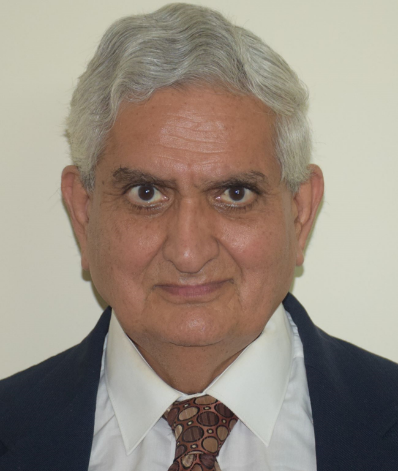Invıted Speaker

OM TANEJA
Dr
Distinguished Lecturer, Ph.D, P.E., FASHRAE
Presentation Title:
An approach to Improved Indoor Air Quality and Operations of Buildings: Adopt Smart Buildings Technologies and Train Operations and Maintenance Staff for Required Competencies
Abstract:
Interest on relevant technologies is to help improve operations of infrastructure and buildings during “Normal and Emergency” situations as well as to allow a quicker reconstitution of spaces, equipment and technologies after emergency situations. This requires metering, sensors. remote monitoring and analytic tools for data monitoring and compilation, managing energy and water use, benchmarking, retro-commissioning and reporting. Innovations in HVAC systems that can help improve performance should be explored, such as, ductless cooling, “demand controlled ventilation”, “dedicated outdoor air systems”, “chilled beams”, “variable refrigerant flow unitary systems”, “geothermal heat pumps”, magnetic bearing for chiller compressors, wireless sensor networks for data centers, solar heating and cooling systems, and adaptive Building Energy Management systems. Greater use of Energy Analytics, Internet of Things (IoT) and collaboration with IT system administrators can help dynamically tune up or down the building operating parameters, based on occupancy, time of day, and other human, environmental, and business considerations.
Buildings’ Mechanical, Electrical systems, including Chiller plants, cooling towers and fan rooms are heavy users of energy and water. These systems offer an enormous opportunity to transfer the sustainable technologies and practices and help transform the marketplace. With so much at stake in terms of energy environment, and economic benefits, industry needs to seek more efficient design and equipment replacements, and to promote efficient and consistent operations and maintenance best practices through trained staff incorporating advanced metering, measurements and verification tools, commissioning and retro-commissioning.
This presentation first focuses on the extent and scope of structured classroom and on the job training to promote the life-cycle mix of preventive, predictive and reliability-centered operations and maintenance “Best Practices”. Traditional “Best Practices” need to be modified and strengthened for high performance buildings. It further emphasizes progressive efforts required for transforming existing and new buildings into “Smart Buildings” by installing sensors, smart meters and building automation systems and normalizing data. Use of Green Procurement, recycling program, regular sensor and equipment calibration, tracking and computerized maintenance management systems targeting reliability, safety, occupant comfort can facilitate meeting the goals.
Biography:
Mr. Taneja holds a Bachelor’s degree in Mechanical Engineering from Indian Institute of Technology, New Delhi, Master’s degree in Control systems and a Ph.D. degree in Systems Sciences and Operations Research from New York University. He is a licensed professional engineer and active in power generation and distribution, sustainability, energy-efficiency, innovative technologies, operations and maintenance issues.. Om has been active in discussing facilities, sustainability and energy-related issues at various professional organizations. He has been an Associate Professor at Kean University of New Jersey, Dean of HVAC/Facilities Management Divisions at Technical Career Institute and periodically takes adjunct teaching assignments in Building Systems. He organized All Day Seminars every year on important sustainability, commissioning, benchmarking & O&M issues in greater New York City area. . Om has presented more than 40 technical and management papers at different national and international conferences.
Mail: [email protected]
